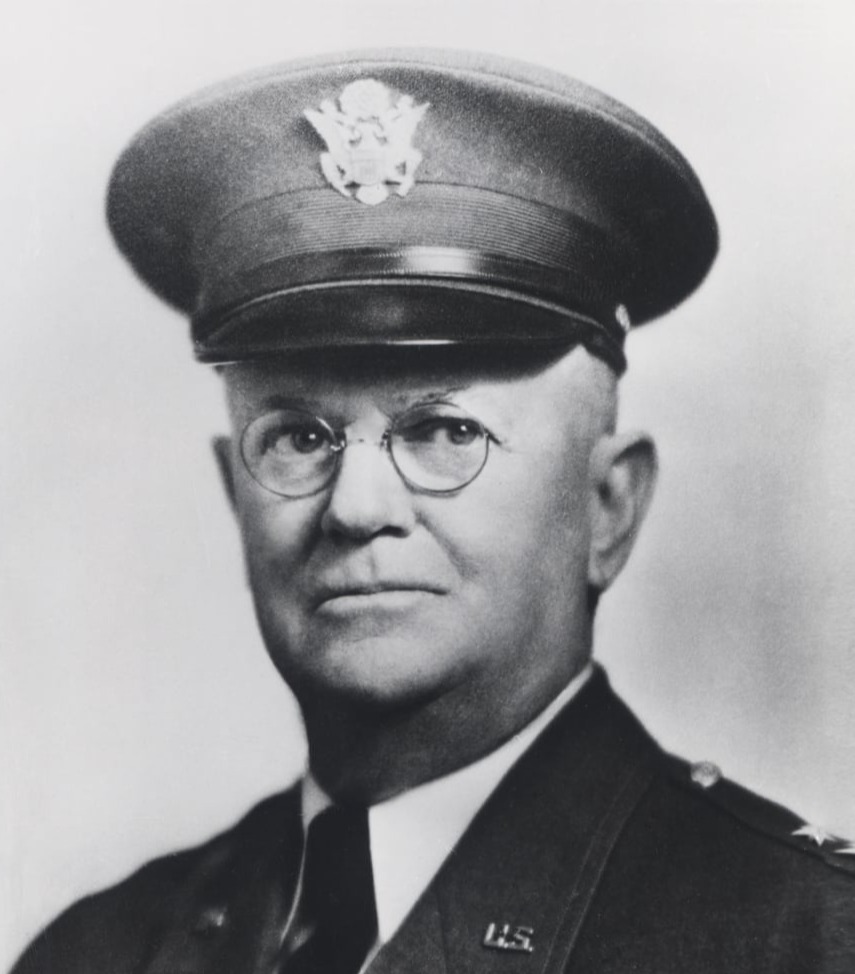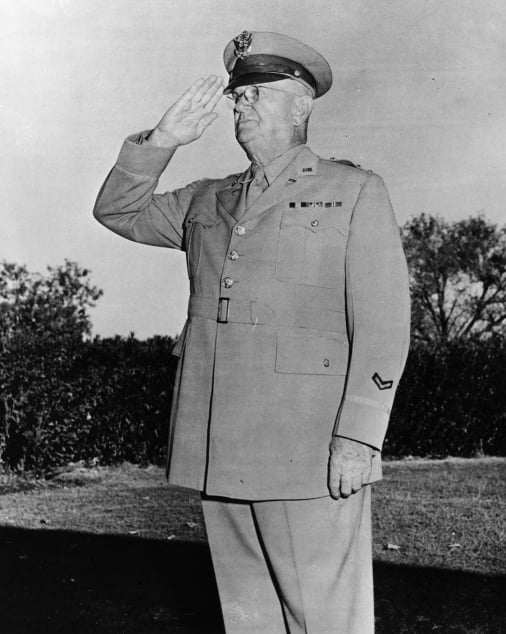
He later used a similar silver plate to close a large opening in a patient's skull. It is believed to be the first recorded use of metal plates in a surgical procedure. On his return from WW I service, he established a private medical practice in Phoenix. He retired from that practice in 1952 at the age of 81. Dr.Tuthill served as State Superintendent of Public Health from 1921 to 1923, president of the Greenlee and Maricopa County Medical Societies, and the Arizona Medical Society president. General Tuthill's military career began when he enlisted in a California National Guard cavalry troop. He served with the unit while attending medical school at the University of Southern California. He was honorably discharged before accepting a position as a surgeon at the Detroit Mining Company Hospital. His Arizona military career began in 1903 when he organized and commanded the 2nd Cavalry Troop as a Captain.

